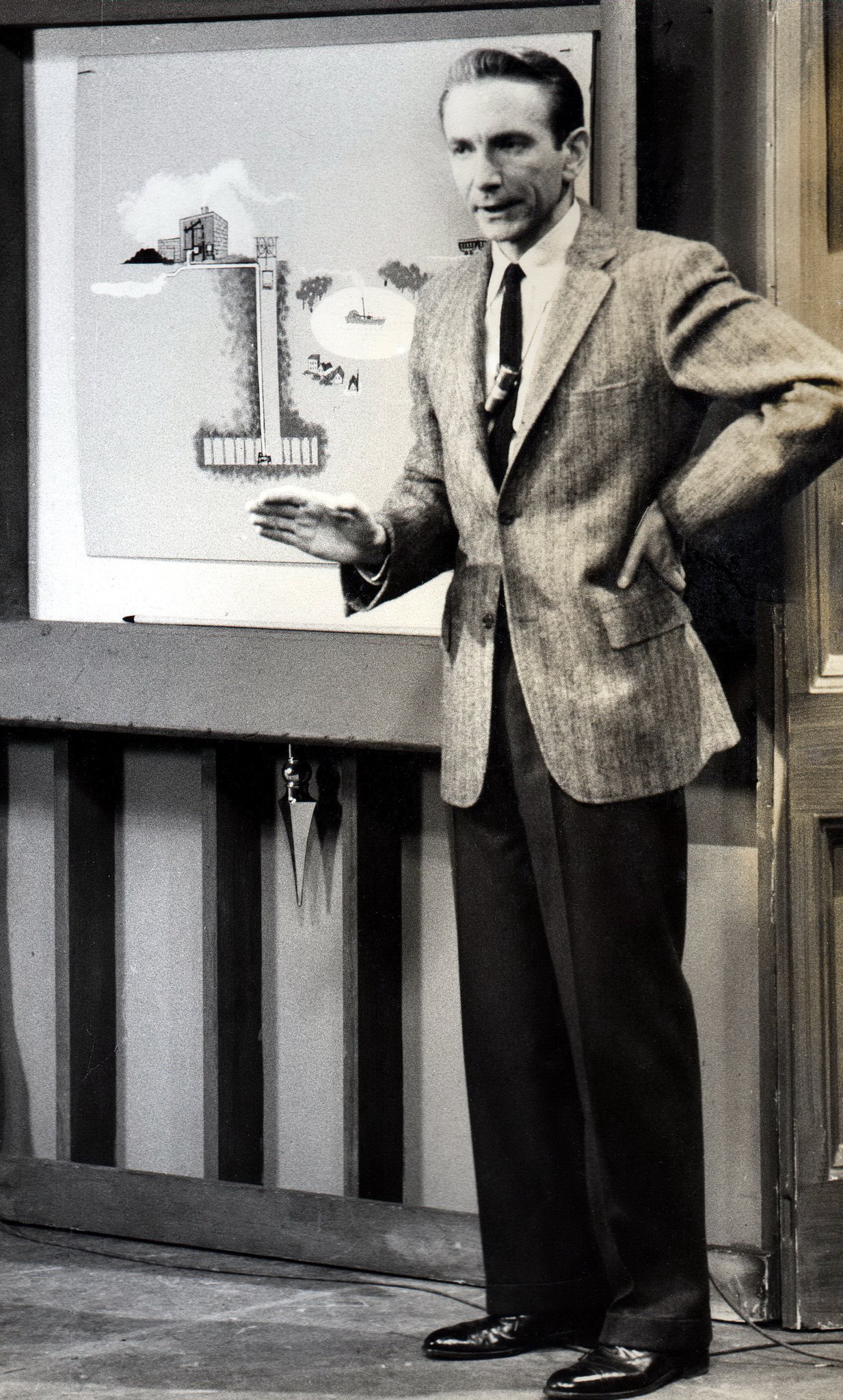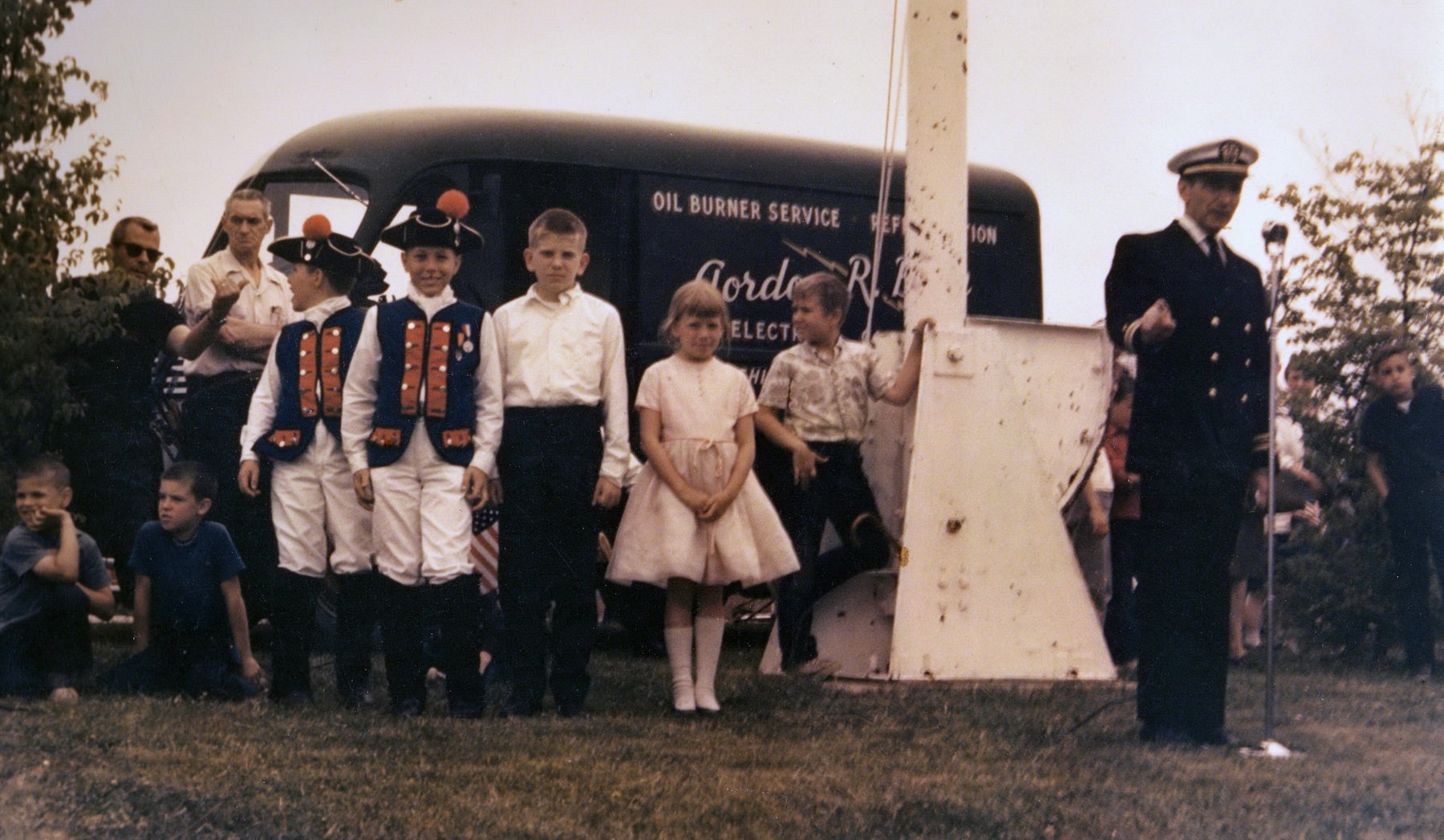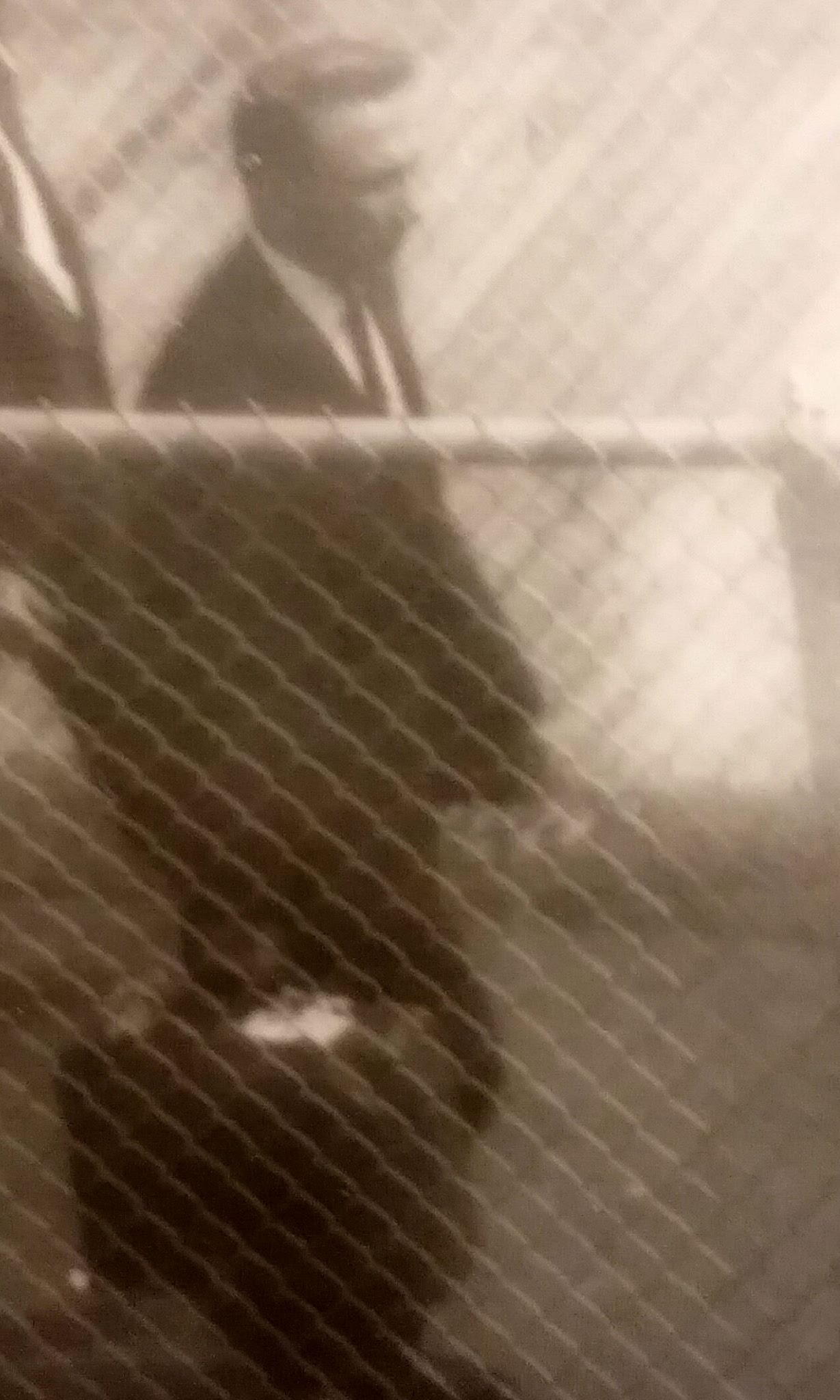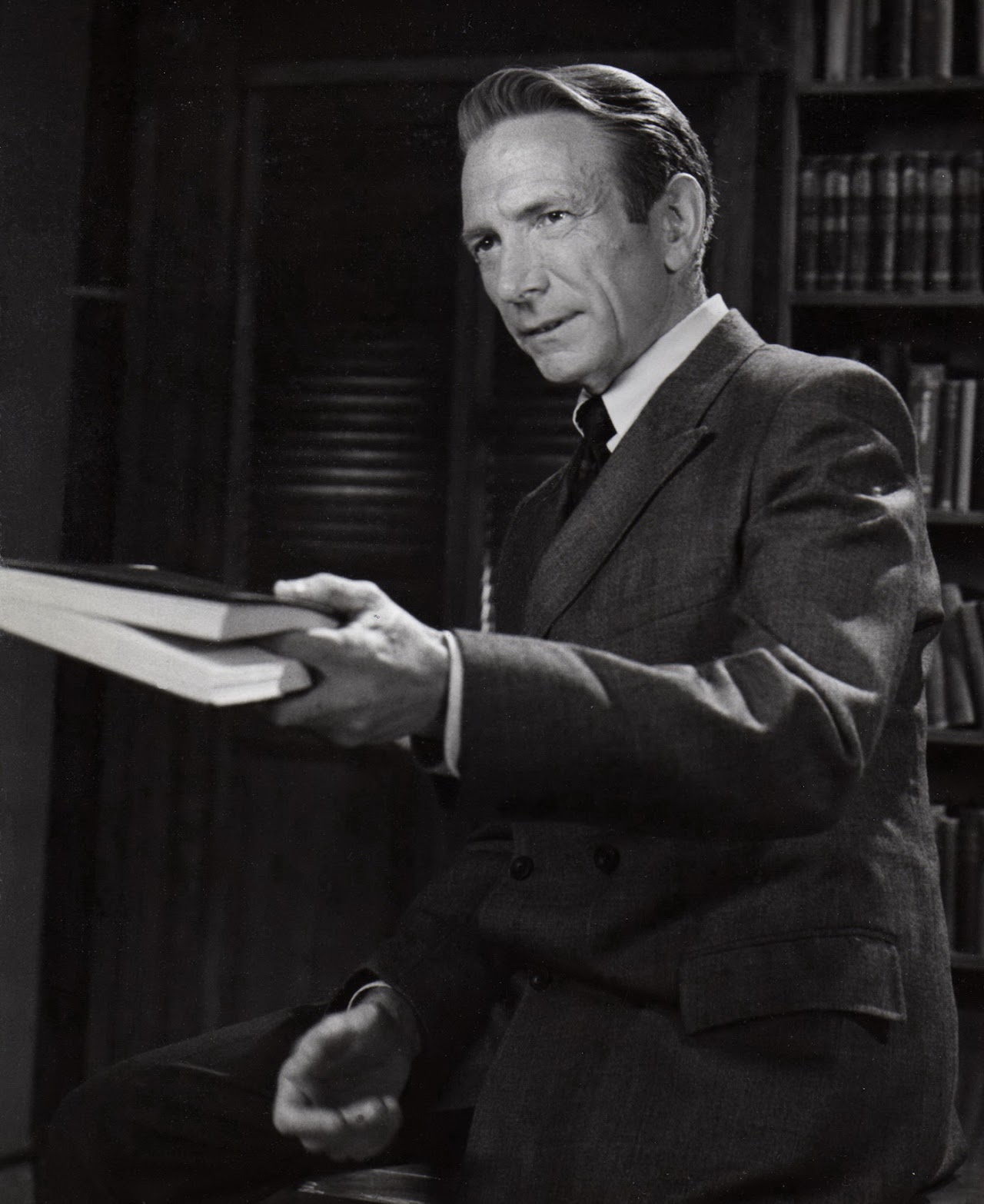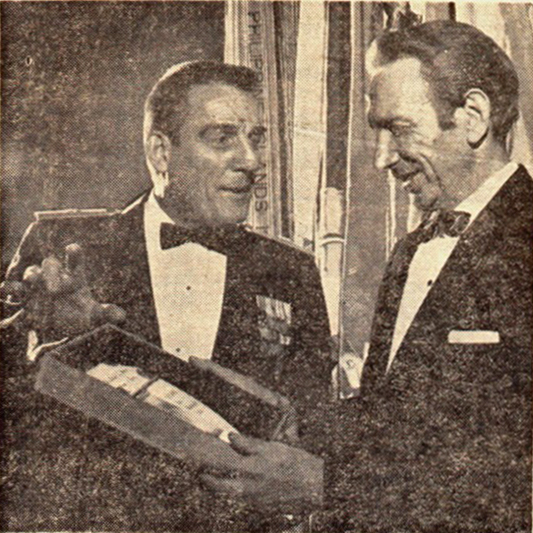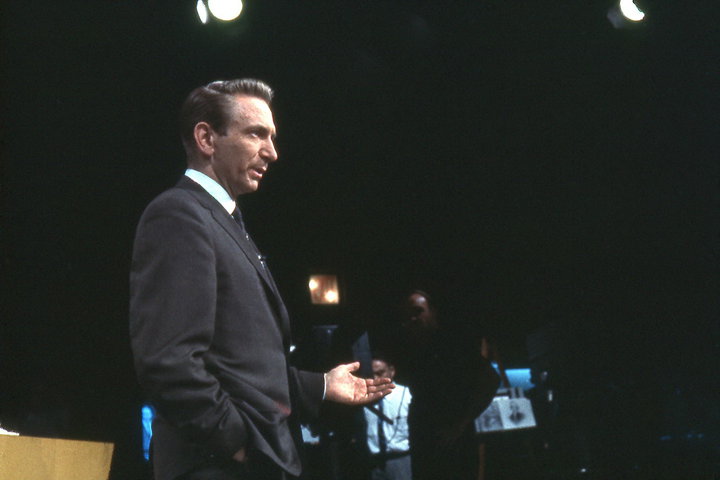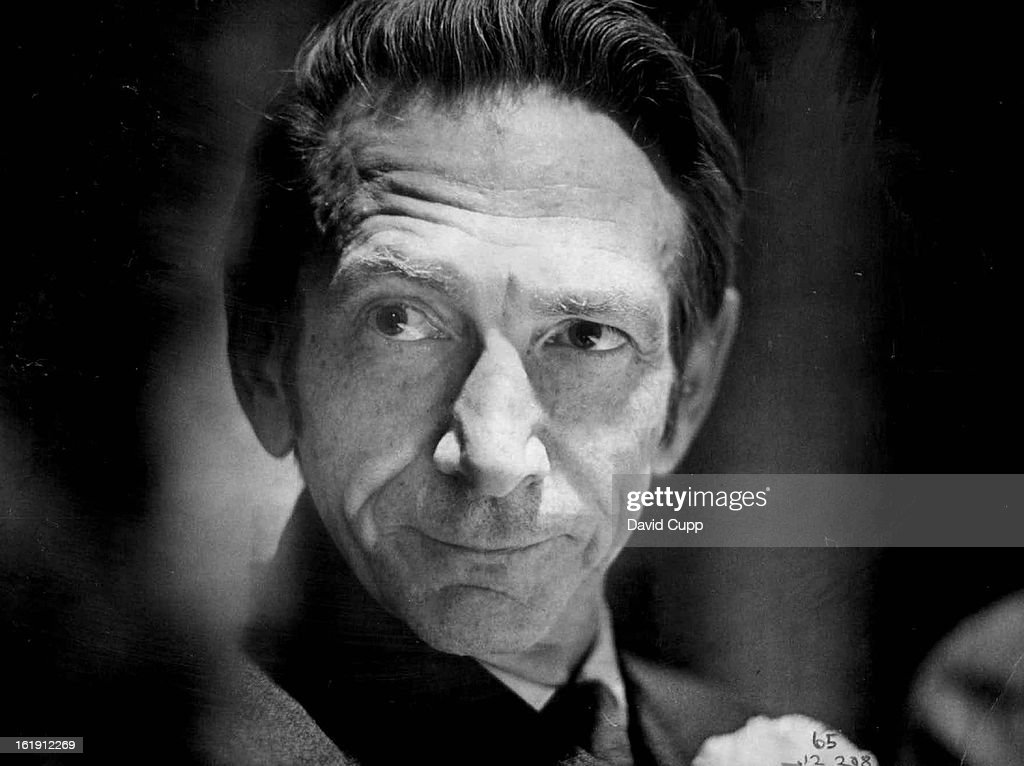Albert E. Burke
HEGE Series
Albert E. Burke (1919–1999) | Wikipedia Yale University professor and a pioneer of public educational television. Burke was an early environmentalist, advocating for stewardship of the environment in the 1950s. He rose to national fame as an early media personality on radio and television, and as an author and in-demand public speaker. Dr. Albert E. Burke | Facebook The Burke Center for Environmental and International Studies About Dr. Burke Center The Burke Center for Environmental and International Affairs is dedicated to perpetuating and promoting the works and way of thinking of Dr. Albert E. Burke. The Center hopes to provide those interested in further investigating the “Way of Thinking” of Dr. Albert E. Burke with the materials he developed over his lifetime explaining the relationships between mankind, the environment and the political structures that can either aid or hamper what today are termed “sustainable development” and "environmental security". Dr. Burke, A Profile A Sought After Speaker — An Address to the Brigham Young University Student Body Patriot Environmentalist Civil Rights Activist See — TV Productions | The American Stranger, and Probe: Stranger in the RayFrom A Distance — Nanci GriffithThis song goes out for Dr. Albert E. Burke From A Distance — Nanci Griffith | YouTube | Wikipedia — Lyrics May God Bless You Good Dr.
Science and Survival — speech given at BYU March 12, 1964
“The topic that was chosen for me today is one that I would really like to talk about. There is only one minor difficulty. About three weeks ago my notes for this talk and everything else I have ever done and my home and my office were burned to the ground, so that what I am going to tell you will probably surprise me as much as it is going to surprise you.”
History Maker: Dr. Burke, a life in pursuit of truth | The Cheshire Herald Sep 02, 2023, Cheshire CT
Curriculum Vitae
UCLA — Earth Science BA & MA
Harvard — graduate work, 1951
Yale — Director of Graduate Studies, Conservation and Resource Use 1951-1957
University of Pennsylvania — International Relations PhD, 1959
American Institute of Resource Economics — 1957
See — TV Productions 1951-1964, TV Appearances
Way of Thinking
Beyond Earth's Atmosphere: Energy Needs For Space Colonization Growing shortages of key inorganic elements, such as rare earth elements for all our electronic gadgets and renewable energy systems, platinum and other related metals, and even helium for medical equipment (yes, and balloons!), suggest that we may need more non-renwable resources than Earth can provide. — James Conca May 5, 2013
The most dangerous situation humanity has ever faced January 27, 2021
— "...hands of the iconic Doomsday Clock remain at 100 seconds to midnight – as close to the end of humanity as the clock has ever been"
If the Way of Thinking (rationale) of Dr. Burke had been heeded over all those decades ago, this would not be the current situation —
Dr. Albert E. Burke: A Timeless Educator
— What He Still Can Teach US
In 1960, Dr. Burke's educational TV program was entitled A Way of Thinking, though the name changed thoughout various years of production from 1951-1964. His "way of thinking" relied on factual information, reason, analysis of cause and effect, juxtaposition, anecdote and analogy — not Propaganda or mere opinion. As such, his way of thinking is still sorely needed in the 2020s where stubborn, mindless opinionatedness and Propaganda are rampant, having reached greater and greater heights over more than half a century since the 1960s.
Dr. Burke spoke out against the Propaganda of his day, what he termed the name-calling, new dangerous parlor game of "creeping socialism" that appeared in the late 50s-60s, rooted in abuses of McCarthyism and operating under the influence of delusions created by Robert W. Welch for his "John Birch Society" (e.g. Dwight Eisenhower was a "communist"). That game, a baiting tactic that works through inflamation of human emotion, has only escalated since then, leading to the current polarized political situation in which "evidence-free" conspiracies predominate — from communism to sexism and racism. After having begun in earnest in political Conservatism (illiberal regressivism) of the 1950s, the "game" proceeded to reach a flashpoint around the JFK assassination in 1963, after which it went underground and undercover until the Reagan era, then went viral into the 3rd Millenium where political Liberalism (liberal progressivism) eventually became infected as well, with its own mutated strain of "woke" parlor game.
Certainly such things as communism, sexism and racism have been and still are problems within the US, so the issue is not whether communism, sexism or racism are problems. The issue is how these problems are analyzed and then addressed. Dr. Burke always addressed such issues with well researched factual information and well reasoned response to such information. He did not traffic in Propaganda, or any form of manipulation. He did not try to "defeat communism by thinking like a Communist" (use communist tactics against communists as Welch dictated Birchers demand). He didn't think the US should fight fire with fire, should use dirty, underhanded totalitarian tactics against totalitarianism as means to justify ends, which would only make the US totalitarian too. Instead of fighting fire with fire, he responded to those who differed from his way of thinking with educational persuasion, not with name-calling end to discussion, lying, evasion, or outbursts of heated emotion or violence — which is what makes Dr. Burke the True Patriot over and against those calling themselves "patriots" when they're not, who do nothing but make "empty barrel loud noise" about "creeping socialism". Such "empty barrels" are forever accusing others of treason, when they are the real traitors who have spurned Dr. Burke's way of thinking in order instead to play games of mindless accusations that lead to violence.
Dr. Burke's way of thinking is evident in his program Cuba: The Battle of America. In that program (like most all his programs, See — TV Productions), he shows clearly how the cause of "creeping socialism" in foreign countries post World War II was (and still is) due to Corporate America's failure to practice concern for others, to "love thy neighbor as thyself" and to "do unto others as you would have others do unto you", thereby revealing that Corporate America cares only about a pocket full of gold, not The Golden Rule. (See — Love of Money) Corporate America's exploitation of natural resources in other countries comes at the expense of the poor who live there, for whom assistance is the Christian responsibility of the individual owners of Corporate America, who are blessed by God with great wealth, well above their own need for survival, abundance not simply for selfish indulgence, but for the sole purpose of being a blessing to others as God has blessed them.
Such exploitation is the cause of revolutions in the exploited countries, revolutions that always seem to crop up under the banner of "communism" (or with the aid of communist Russia or China) because such revolutions are in opposition to the capitalist exploiters who are Corporate America. It's as simple as the fact that if there were Corporate Americans that opposed such exploitation of foreign lands (who potential revolutionaries could turn to for support in expelling exploiters from their homelands), then exploited people would not have to turn communist or turn to communists to support their opposition to being exploited. Dr. Burke voiced opposition to such mindless exploitation because he was a True Patriot who loved and cared for the US, the Earth environment (without which nothing and no one can live), and the civil rights of Americans, minorities, and indigenous people around the world, all of which were (and apparently still are) fair game for exploitation according to the Corporate American way of thinking.
So in the final analysis, the "creeping socialism" parlor game that's been played for decade upon decades, and it's latest counterpart "game" of "woke" (the flip side of the same propagandized political coin) are nothing but Propaganda ploys. Such ploys serve the purpose of maintaining the status quo of Corporate America's pocket full of gold, by dividing Americans and thereby distracting from the underlying problem common to everyone in order to maintain the Economy by way of Business as usual. That ploy can only succeed as long as Corporate America can find useful idiots, puppets to play the "creeping socialism" and "woke" parlor games.
In reality, political "left" and "right" are the Propaganda magician's illusion, because all the political elites from both parties have their hands in the same pocket full of gold of Corporate America.
America's Battle for Cuba's Freedom
See —
Pinocchio
G. William Domhoff, Capitalism, Government
Conservatism, JFK assassination, Liberalism
Military, Foreign Policy, US spy agencies, Whistleblowers
Covert Action Magazine, Phil Agee, John Pilger
Popi
Popi 1969 | Wikipedia
Popi | TubiTV
Alan Arkin is incredible in the 1969 film Popi, which lays bare the farce of “creeping socialism”. His accent is so authentic, you'd swear he's Latino. Popi, a Puerto Rican widower living in New York City, hatches a harebrained scheme that he almost pulls off, in order to create an escape hatch for his two sons from a life of poverty, crime, and negative influence in Spanish Harlem. His scheme is to pass them off as Cuban refugees in Miami, so that the mainstream press and public will take pity on them as poor escapees from Castro's communism, and shower them with love and assistance, opportunity which would never happen for any other poor citizens already living in the United States.
"Creeping Socialism"
See —
JFK Assassination
Conservatism - JFK Assassination
Conservatism
Liberalism
The John Birch Society Sees A Renaissance In North Texas
The Birchers & the Trumpers
Haroldson L. Hunt | Spartacus Educational
Haroldson Lafayette (H.L.) Hunt Jr. | Wikipedia
The excerpt below from Enough Good Men: A Way of Thinking [Nov 1962] in the chapter Dirt, People and History is a fine example of how Dr. Burke related historical events to the environment around us. The only aspect missing in this printed word, is merely the timing and the inflection in the way Dr. Burke presented it: Origin of "A Pact With the Unborn" — That kind of freedom grew among a people with elbowroom; few Americans in a big land. With plenty of elbowroom, twenty-three million Americans back in 1889 were free to turn their Oklahoman upside down irresponsibly [See — Land Rush of 1889]; and they didn't mind too much when the United States government stepped in to help them. Today's much larger American population has less of that "elbowroom," on farmlands, in mines, in good water, good air, or in any natural resource. Today's American has less, and poorer quality resources to work and live with. We are no longer free to do as we please with them; but many among us today still mind very much that, since stepping in to help deal with problems like that emergency in 1890, the government has never really stepped out of what were once our private affairs. This resentment has led to a new parlor game in this country during the last thirty years ['30s-'50s], a dangerous game of name-calling called "creeping socialism." It is played by too many Americans today who simplify things too much. Often they know little to nothing about the kind of American history made by irresponsible men who forced the government into what were then our private affairs. That record clearly shows what happens when individual Americans misuse their private affairs by making them public problems. When that point is reached, the government always steps in. Americans who play this dangerous new game of "creeping socialism" see that government, their government, as one of the greatest dangers to our future as a free people. In doing so they misuse the word "socialism" and they misread their own history. The problem has never been "creeping socialism" in our American government. It has always been creeping irresponsibility among too many Americans. — Dr. Albert E. Burke, Environmentalist | The Burke Center for Environmental and International StudiesDaniel Boone TV series 1964Daniel Boone (1964 TV series) | Wikipedia popular shortly after Dr. Burke published his book Enough Good Men (Nov 1962) that referenced "elbowroom". Daniel Boone | Wikipedia Elbowroom was a prominent theme in early 20th century poem Daniel Boone by American poet Arthur Guiterman. Arthur Guiterman | Wikipedia Daniel Boone by Arthur Guiterman Shakespeare may have coined elbowroom in his 1597 play “King John.” The dying king in the final act is carried out into the orchard, situated on the castle grounds; breathing the fresh air, King John says, “Ah ... now my soul hath elbow room.”
Quotes
There is a quotation attributed to Saint Paul which goes something like “Who would redeem the world must first discern it,” and, in our time, discerning the world is probably the most important job we have to do. — Dr. Albert E. Burke, BYU speech March 12, 1964 [I]t was around 1961 when things became difficult for our family because of “certain things” he had said on the air. ... Among the vast material I have stored are the original tapes from his first shows on the air, from back in the early 1950’s all the way through his last shows on NBC in 1964 — when he was forced off the air. ... I recall that time very well, including how the John Birch Society was absolutely after him. I think they made him an honorary member. To be honest, he was a little peeved about it. — Helen Burke, daughter of Albert Burke January 30, 1964. Our home burned to the ground and it was determined to be arson. This was when he decided to go off the air. — Helen Burke, daughter of Albert Burke $60,000 Fire Destroys Cheshire Home Of Dr. Albert E. Burke, Noted Lecturer | Facebook I have listened to communists and other groups that can only be called enemies, accuse us of the worst intentions, the most inhuman ways of doing things, as the most dangerous people on earth, to be stopped and destroyed at all costs... But nothing I have heard in or from those places around us compared with the experience I had in the Dallas home of an American, whose hate for this country's leaders, and the way our institutions worked, was the most vicious, venomous and dangerous I have known in my life. No communist ever heard, no enemy of this nation has ever done a better job of degrading or belittling this country. That American was one of this nation's richest and most powerful men! It was a very special performance by a pillar of the American community, who influences things in his community. It was a very special performance because in that living room during his performance - in which he said things had reached the point where there seemed to be 'no way left to get those traitors out of our government except by shooting them out' during that performance, there were four teenagers in that room to be influenced. His views were shared on November 22, 1963. Interestingly, the man accused of that crime claimed to be a Marxist, a communist. But my host assured me - when I objected to his remarks - that he believed as he did because he was anti-communist! What happened in that home in Dallas, of one of America's richest and most powerful men, smashed that goal of America as a united country for the four teenagers in on that conversation that night. — Dr. Albert E. Burke after attending a meeting at the home of Haroldson L. Hunt (per John Simkin, Spartacus Educational) American after American is meeting dedicated Marxists and is not able to answer their questions. We do not understand our own American history. ... You cannot defeat communism by thinking like a Communist. I am concerned about Americans who do not know enough about their own way of life to have to adopt Communist methods. — Dr. Albert E. Burke, 'The Sputtering Fuses From Berlin To Havana', September 1961 speech, Statler Hilton Hotel, Dallas (per James Richards, Australia)
You certainly don't have to love thy neighbor, but you'd better pick a better reason not to than the color of his skin. ... For those who shout about communism, the loudest is usually the least knowledgeable. Empty barrels make the most noise and it doesn't take a loud noise to be patriotic and have concern and dedication. You can go about it in a quiet manner. — Dr. Albert E. Burke, 'American Ideals and World Realities', mid 1963 speech, Dallas Council on World Affairs (per James Richards, Australia) The United States' vision of foreign policy is just blank checks being written by blank minds. — Dr. Albert E. Burke (per Helen Burke, daughter) Peace symbols don't make peace, it takes hard work. — Dr. Albert E. Burke, The Denver Post May 5, May 13, 1972 | Getty Images
TV Productions
Enough Good Men: A Way of Thinking 1962 — book compiled from transcripts of Dr. Burke's television programs
Hartford Times 1956 — documents Dr. Burke's advocacy of resource conservation, long before many other environmentalists
Burke was one of several professors involved in 1957 in educational programming supported by a collaborative initiative between the Educational Television and Radio Center (ETRC) and the National Broadcasting Company (NBC), when he hosted “Geography for Decision” while he was serving at the American Institute of Resource Economics. — Wikipedia ETRC, which became National Education Television (NET), was owned by the Ford Foundation (grant from FAE - Fund for Adult Education) and later co-owned with the Corporation for Public Broadcasting (CPB) which funds the Public Broadcasting Service (PBS). TV Programs 1951-1964 This is Your World | WNHC (NBC) New Haven CT 1951 Geography for Decision | American Institute of Resource Economics 1957 (NBC & ETRC) Survival: The Story of Man, Resources, and Civilization | 1958 A Way of Thinking | 1960 (The Cutting Edge?) (Challenge?) Probe (NBC) | 1960-1964 — First program to be broadcast nationally on 40 TV stations
Albert Schweitzer Symposium Part 1 (1947?) | YouTube
Albert Schweitzer Symposium Part 2 (1958?) | YouTube
SURVIVAL: The Story of Man, Resources, and Civilization —
In Rich Veins...A New World Dec 26 1957 | YouTube
Land For Living's Sake 1960 | YouTube
Dr. Albert E. Burke brings to the Connecticut and Massachusetts television audience the little-known facts behind the well-known headlines. Through the eyes and ears of this scholar, the true significance of developments around the world is presented in a weekly analysis which, the station says, has evoked tremendous public response. — Peabody Digest 1958
The American Stranger Dec 1958 — entry to 1958 Peabody Awards, News category
— “Burke uses the story of Pima Indian Ira Hayes, one of the six marines to raise the U.S. flag on Iwo Jima in WWII, to illustrate the U.S. government's treatment of Native Americans. He refers to an NBC program, "The American stranger," which had recently provoked widespread public outrage, and to a defensive response issued by the Department of the Interior. Burke says the program was accurate and cites examples of treaty-breaking on the part of the government, and of lawbreaking on the part of wealthy whites, whom he compares to the fictitious greedy rancher Elder Conklin, a character in a Frank Harris short story by the same name. He gives examples of Native American contributions to farming and medicine and says that Benjamin Franklin and Thomas Jefferson were inspired by the governmental structures of the Five United Indian Nations. Includes footage of the raising of the U.S. flag on Iwo Jima, the Pima reservation, and Coolidge Dam.”
Cuba: The Battle of America 1960 | Internet Archive
A WAY OF THINKING
Broadcast Transcriptions U of TN 1960-1962
THE CUTTING EDGE —
The Narcissus Caper Part 2 | YouTube
CHALLENGE — aired Wed nights
Transcripts:
Dynamics of Democracy Part I Apr 18 1962
Dynamics of Democracy Part II Apr 25 1962
Dynamics of Democracy Part III May 2 1962
Dynamics of Democracy Part IV May 16 1962
Prominent Yale academic and author Dr. Albert E. Burke hosts PROBE —an examination of political, social, and environmental issues of the day. Topics considered were extremely prescient for the time: pesticide use; the plight of Native Americans; third world poverty; juvenile delinquency; trends in agriculture toward corporate farming; dual standards in the US judicial system regarding people of color; political issues of the middle east, Latin America, China, and the Soviet Union; and the coming collapse of the natural resources of the US. — Chris Cooling IMDB PROBE — Part 1, Part 2 Glendale Federal news release entitles program A Way of Thinking instead of Probe, refers to Dr. Burke as “noted educator and world affairs commentator” who “covers vital global and domestic issues using an unusual lecture technique”, and reports that the show debuted (in LA) Tuesday nights at 8pm weekly for a half hour on KCOP Channel 13 (founded 1953) and is enscribed in the Congressional Record as an “outstanding TV series” praised by the New York Times and covered in a Look Magazine 3 page article. Transcripts: The Monster Slayer Part I 1962 The Monster Slayer Part II 1962 The Monster Slayer Part III 1962 The Monster Slayer Part IV 1962 Stranger in the Ray 1962 The Murderous One Episode 13 (Dec 3 1963?) Sponsored by Glendale Federal Savings, Glendale CA Glendale Federal Sponsors New TV 'Thinking' Program | Facebook Episodes: Mayeda and Time Bomb 1963 | YouTube East Wind, West Wind 1964 | YouTube
TV Appearances
Tonight starring Jack Parr Season 5 (NBC) 1961-62
Oct 05 1961
Dec 06 1961 | Archival Television Audio Inc.
“Guest Dr. Albert Burke criticizes Americans who are degrading America. He discusses Stalin's appeal to Russians.”
Dec 15 1961 [repeat]
Dec 25 1961 [repeat]
Jan 22 1962
Merv Griffin Show
Feb 27 1963 | Archival Television Audio Inc.
Dick Cavett Show 1970
News Articles
Photos
Photo Gallery | The Burke Center for Environmental and International Studies
Dr. Albert E. Burke | Facebook Photos
